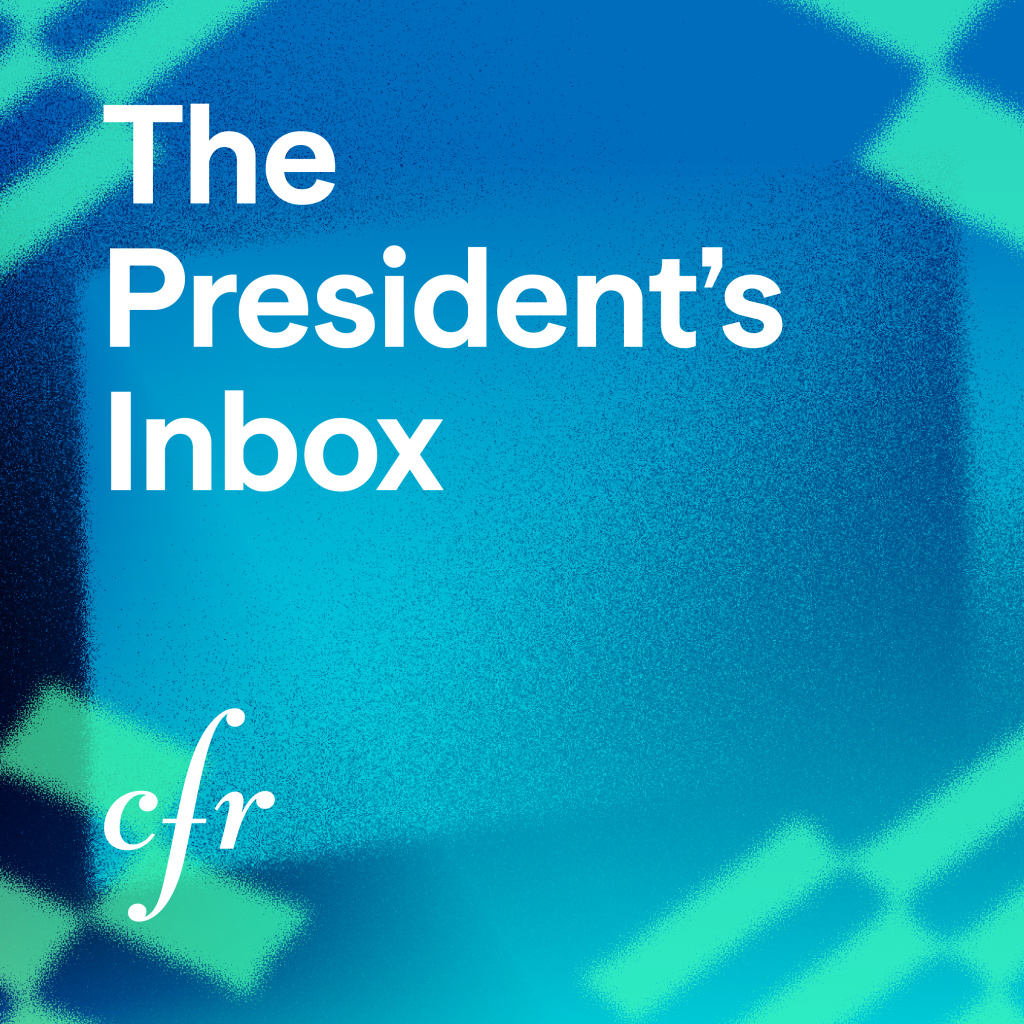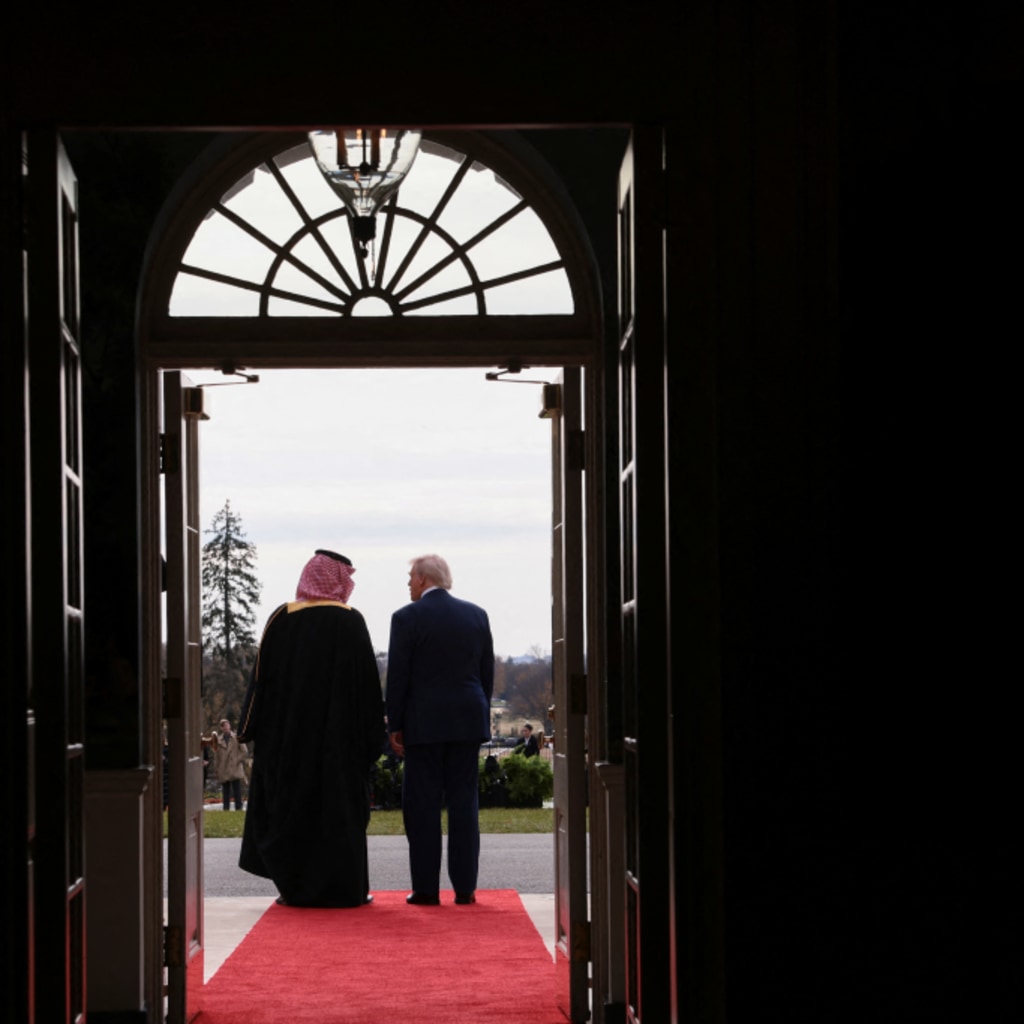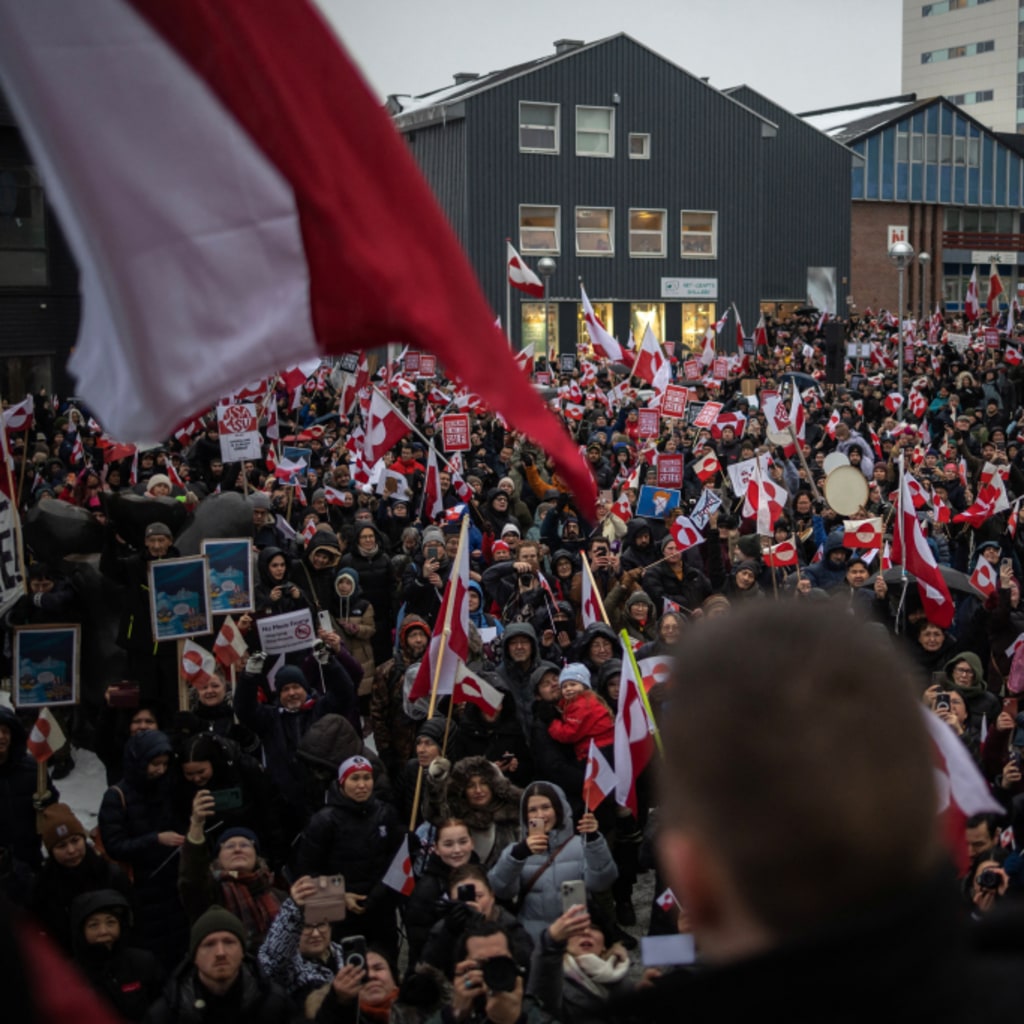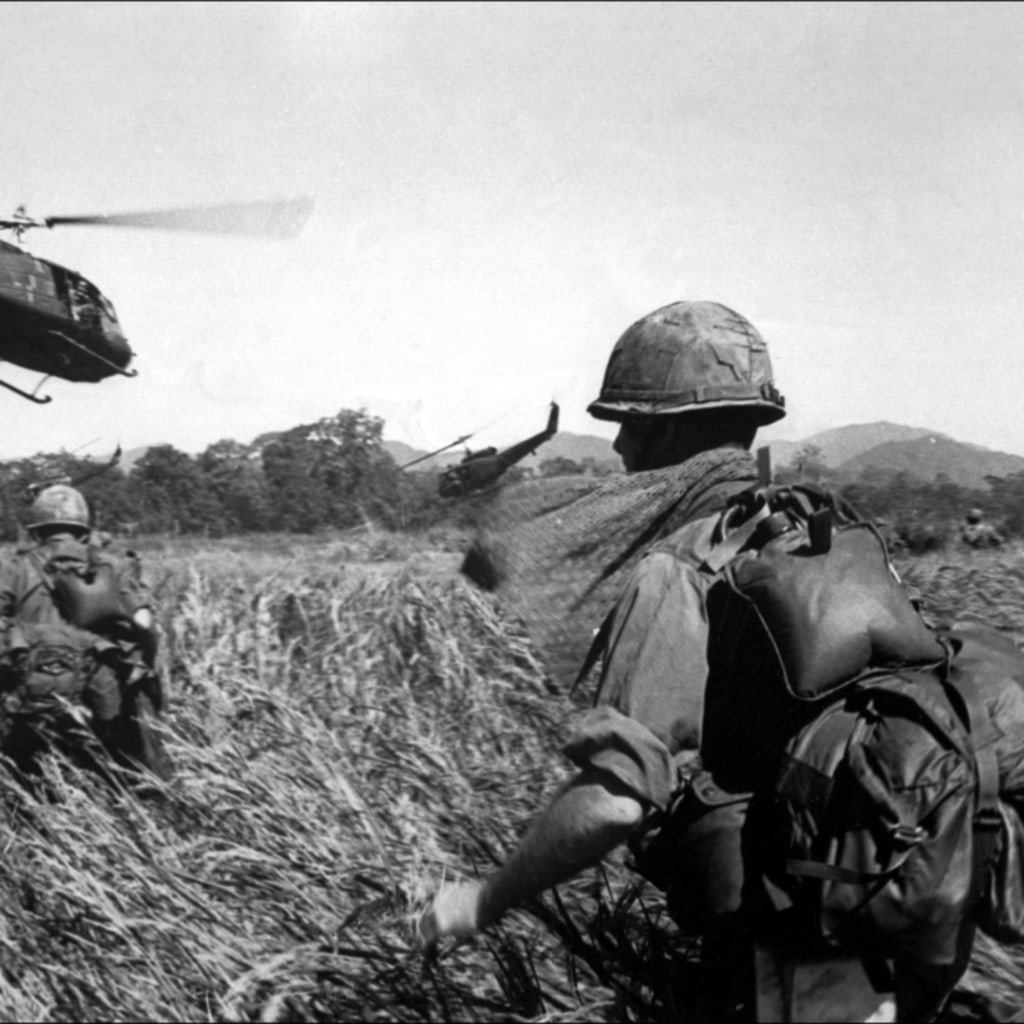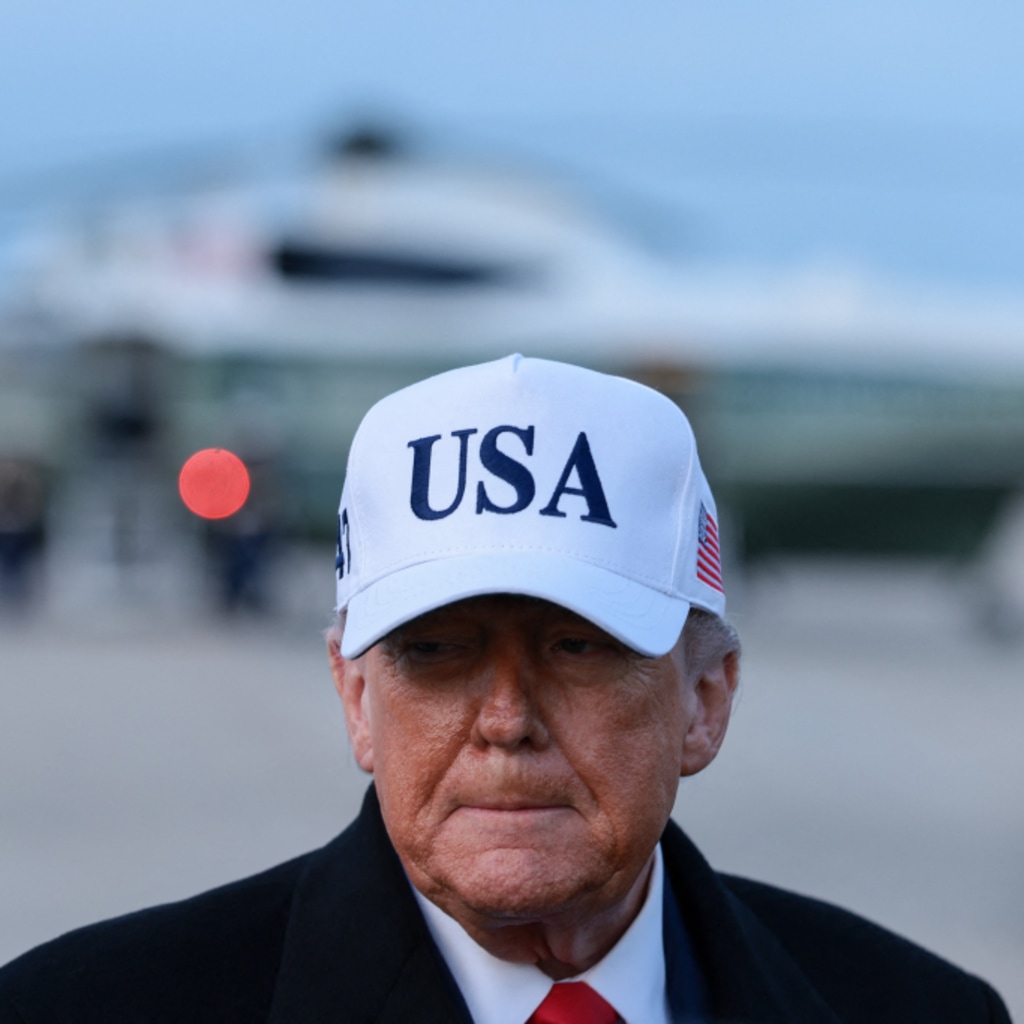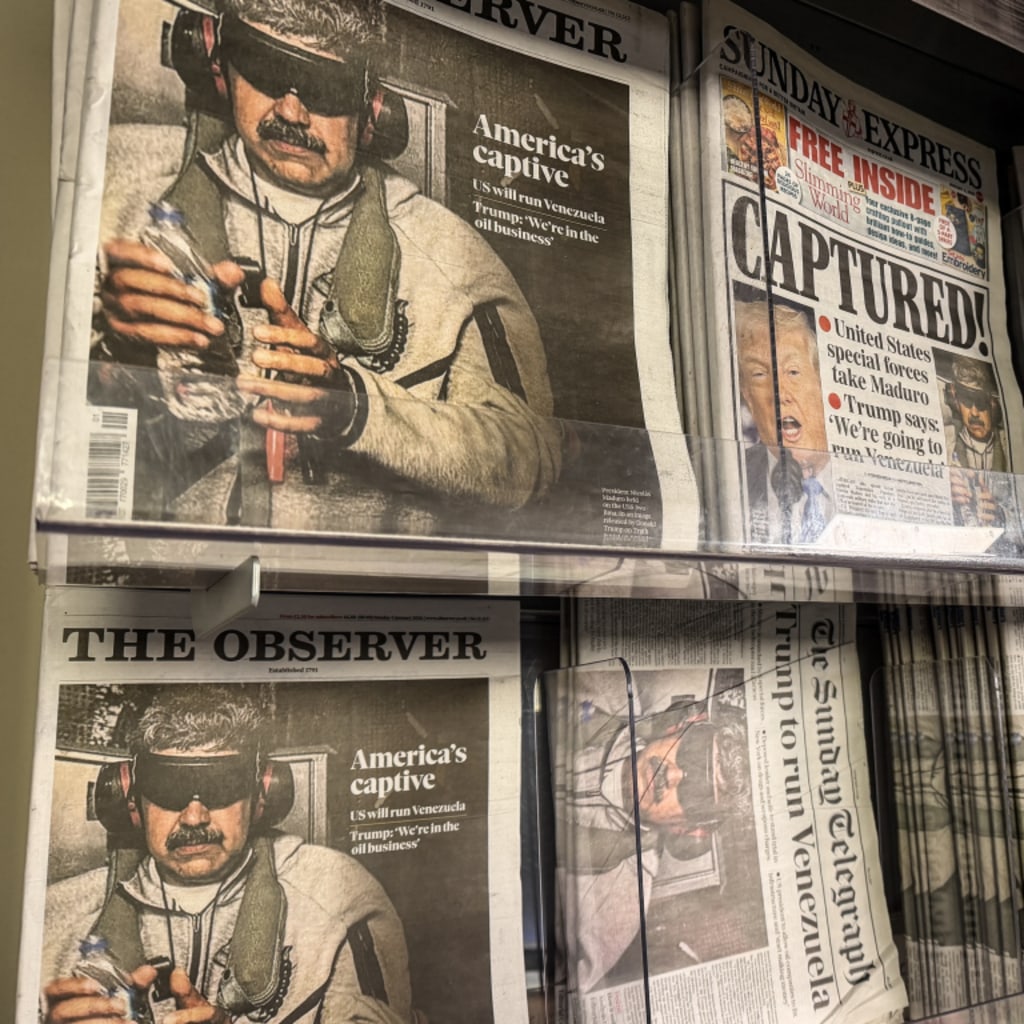Threats to Free Expression, With Suzanne Nossel
Suzanne Nossel, the Chief Executive Officer of PEN America, sits down with James M. Lindsay to discuss growing threats around the world to free expression and how the fight to protect human rights needs to adapt to succeed in a world of great power competition.
Published
Host
- James M. LindsayMary and David Boies Distinguished Senior Fellow in U.S. Foreign Policy
Guest
- Suzanne F. NosselVisiting Senior Fellow for Global Governance
Associate Podcast Producer
- Ester FangAssociate Podcast Producer
Editorial Director and Producer
- Gabrielle SierraDirector, Podcasting
Show Notes
Mentioned on the Podcast
Freedom House, Tracking Democracy and Freedom Around the World
PEN America, PEN Freedom to Write Index
Reporters Without Borders, World: Abuses in Real Time
Suzanne Nossel, Dare to Speak: Defending Free Speech for All
Suzanne Nossel, “Salman Rushdie’s Entire Life Has Been an Act of Defiance,” The Guardian
Suzanne Nossel, “The Old Human Rights Playbook Won’t Work Anymore,” Foreign Policy
Suzanne Nossel and Leslie Vinjamuri, “Some Assembly Required: Why the UN’s Broadest Forum Matters More Than Ever,” Foreign Affairs
Transcript
Jim Lindsay:
Welcome to The President’s Inbox, a CFR podcast about the foreign policy challenges facing the United States. I’m Jim Lindsay, Director of Studies at the Council on Foreign Relations. This week’s topic is threats to free expression. With me to discuss assaults and free expression in human rights around the world is Suzanne Nossel. Suzanne is the CEO of PEN America. An organization founded exactly a century ago to ensure that people everywhere have the freedom to write, speak, and access the ideas and views of others. She has long been active in human rights work, having been Chief Operating Officer of Human Rights Watch, and Executive Director of Amnesty International. She served as Deputy Assistant Secretary of State for international organizations during President Obama’s first term. She’s the author of “Dare to Speak: Defending Free Speech for All,” which was published in 2020. She has also written numerous shorter pieces, including one she wrote last month entitled “The Old Human Rights Playbook Won’t Work Anymore.” Suzanne, congratulations on PEN America’s centennial and thank you for taking the time to speak with me.
Suzanne Nossel:
Thanks for having me.
Jim Lindsay:
Now, Suzanne, I suspect a lot of people listening to our conversation aren’t familiar with PEN America. Could you tell me a little bit about your organization?
Suzanne Nossel:
Yeah, sure. We describe our mission as to both celebrate and defend freedom of expression worldwide and have a literary side of the organization or membership organization of writers. We give out literary awards, we hold public programs, we do a big festival in New York City, we have various programs to elevate and amplify the voices of those historically excluded from the literary community, including young, undocumented DREAMers, incarcerated writers, who we mentor and assist to get their voices out. And then we have a big free expression advocacy arm where we do global work. We do extensive work on Myanmar, on Ukraine, which we can get into on Belarus, Russia. And we increasingly do work on the United States. When I first came to PEM, I would say we thought of ourselves something as an organization of U.S. writers who stood alongside those around the world who suffer for what we in this country have thought of ourselves as being able to do very freely. And over the last five or six years, it’s become clear that many of the threats to free expression that we face around the world are here on our own doorstep as well. And we have some in our own country that are unique and surging. And so there’s a real interplay between our U.S. work and our global work.
Jim Lindsay:
Well, I’m glad you mentioned the fact that you were a membership organization, Suzanne, and I must say the roster of your founding members is quite impressive. I see they include Willa Cather, Eugene O’Neil, Robert Frost, Booth Tarkington, all people I remember from high school and college English classes.
Suzanne Nossel:
Yeah, it’s amazing. I mean, if you go through on our website, there’s a board of trustees archive and it’s just extraordinary sort of who was on and around the table at new on time. You have board meetings where you know it was Mailer, Miller, Sontag, Bellow, Cheever, Updike. So hard to imagine what those discussions were like. It was supposedly very fractious back in those days.
Jim Lindsay:
I can certainly imagine that. But let’s turn to the topic at hand, which is the current state of free expression in human rights. How would you assess where we are in this moment in history?
Suzanne Nossel:
It’s a perilous moment for both the human rights agenda and for free expression, specifically. At a global level, what I worry about is that the consensus that has underpinned respect for human rights worldwide, which is never been ironclad, it’s always been a work in progress that have always been hypocrisies, blind spots, gross violations that have gone unreported or without anyone held to account. So it’s never been idyllic. But at this point I think what we see is a really aggressive counter movement to rewrite the rules, to undercut the norms, to put forward an alternative vision of international order that doesn’t have human rights as an important precept. That alternative order has some appeal in some parts of the world because there is so much uncertainty about what it means to respect freedom of expression in the digital age. All of the ills and perversions of online speech are cause for genuine alarm for all kinds of different reasons, by authoritarian governments, by democratic governments and so there’s a sense of unease that these protections that are so longstanding and been cherished here in this country may not be able to stand the test of time. I think those who have never adhered to or believed in these precepts are using that opening to suggest that it’s time to move past this liberal democratic and human rights based order.
Jim Lindsay:
Now, Suzanne, a number of organizations in this space have put forth reports and maintain indices tracking democratic backslide in the curbing of human rights and the rest, I mean, Freedom House often comes to mind. PEN America has its own index, the Freedom To Write index. Can you tell us a little bit about the trends you’re seeing there?
Suzanne Nossel:
Sure. Look, we’ve only put the index together for three years. It’s something wanted to do from the time I started at PEN. I wanted to track the situation of writers and intellectuals because to me it’s an important barometer of democratic health and vitality to see how those who are generating new ideas, who are breaking boundaries in an artistic and creative way, how they’re treated. And what we see is that governments around the world go after them. Certain people may call it to question whether writers are human rights defenders or what they have to do with the fate of democracy, but if you look at the trends and the behavior of governments, it’s clear that writing matters. And there are regimes that take a very punitive approach to those that shine that stark light. And so we see in our index, hundreds of writers each year that are targeted, put in jail, prosecuted. 277 in 2021, which is our most recent index. It’s gone up modestly between 2020 and 2021 and up significantly since 2019 when we started, were the number was 238. And so the trends are negative. We see certain countries at the top of the list: Saudi Arabia; Turkey; China, always; Myanmar over the last year because of the coup really skyrocketed. And so this is a tactic of choice by authoritarian governments around the world to target writers and suppress their voices.
Jim Lindsay:
And it seems that those efforts by authoritarian governments to silence voices extends beyond their border. As we saw with the vicious attack on Salman Rushdie last month. I believe a former president of PEN America, I know a friend of yours who’ve worked with him and he wrote a lovely piece in The Guardian last month talking about it. Let me just quote you there. You wrote, “writing and speaking or acts of bravery, encourage that deserve and demand to be defended.”
Suzanne Nossel:
Yeah, look, that was devastating. It was something we had not witnessed on U.S. soil before that I frankly never thought we would witness. Salman is a mainstay of our organization. He’s been at many dozens of our events over the years and never with added securities. He’s lived very freely and openly and boldly. And so it was a harsh wake up call, but really in a sense, not surprising because the phenomenon of what I think of as the long arm of authoritarianism, reaching into free societies to target dissenters and writers is something that we had documented and had worked on. There are other Iranian American writers who have been targeted with plots and people who are living here in the United States. Obviously the murder of Jamal Khashoggi by the Saudi government at their embassy in Turkey was the most sort of vivid and shocking example. But it’s become again, a tactic of choice where it used to be that if someone ran afoul of an authoritarian government, they could get into exile. They knew they had more or less made it to safety, and that’s no longer true. We see people being surveilled in some instances, assassinated, captured, planes forced down to bring people back and hold them to account by these repressive regimes. And so it’s an undermining of international law. It’s an undermining of the role of free countries as offering a refuge for those who take those risks. And so it was devastating, but it’s definitely part of a trend.
Jim Lindsay:
Suzanne, I’m glad you mentioned the killing of Jamal Khashoggi because it reminds me of an excellent index that’s compiled by a group called Reporters Without Borders. It tracks journalists that have been killed or imprisoned, and they’re also seeing alarming trends, noting that 35 journalists around the world have been murdered so far this year. And oftentimes when people hear statistics like that, they think of journalists being killed in a war zone as the case now in Ukraine. But while five journalists have died in Ukraine this year covering the war, if you go to America’s southern neighbor, Mexico, a stunning number of 10 journalists have been killed so far this year. So the act of both writing about the world in covering the events can be quite dangerous.
Suzanne Nossel:
Yeah, absolutely. And look, I think you do have to draw a distinction between those who are caught in the crossfire. Journalism can be dangerous work. People sort of assume those risks knowingly and it’s tragic. But that is in the nature of the work of journalism. What is not in the nature of the work of journalism is to be targeted and the victim of a targeted attack or a murder. And in Mexico, it’s not the government itself that’s doing it, it’s gangs, it is criminal syndicates, but they operate in a climate of impunity where they’re not held accountable. These cases are not investigated. Nobody is brought to justice and they operate on the basis that if they need to go after someone, they can get away with it. And so it becomes an incredibly dangerous sort of enabling environment for attacks on journalists, and that has a drastic chilling effect on freedom of speech. You have to recognize that each case that we document of a writer or that an organization documents concerning a journalist, it’s not just that individual who’s affected it is everybody who knows about that person, who follows the topics that they write about, who covers similar issues, who is on notice that they may be targeted for what they are doing, that this work is dangerous, that there are enemies who are out there who may go after them. And so the loss is really for all of us who depend on writers and journalists to do the work of shining a bright light on things that governments don’t want us to see. And they do that at their own peril.
Jim Lindsay:
Suzanne, I’m glad you raised the killing of Jamal Khashoggi for a second reason, which is it gets to the heart of the issue you grappled with in the foreign policy piece you wrote that I mentioned at the top of the show. And that’s the question of whether efforts to promote free expression to defend human rights can remain a priority in a world of greater geopolitical competition. We obviously saw President Biden go to Saudi Arabia this summer where he met with Crown Prince Mohammed bin Salman, who is widely believed to have ordered the killing of Mr. Khashoggi. And it raises the question of whether or not the United States can make human rights a priority in a world in which you’re also trying to recruit friends and allies against other regimes. I’ll note that you wrote that human rights activists may have to get used to being disappointed when it comes to high stakes human rights brinkmanship. Why is that?
Suzanne Nossel:
Yeah, because our geopolitical climate has changed. Look, it was always a battle as a human rights advocate, whether you were inside government or on the outside to get your issues on the agenda. You are working to get whoever is in charge of the regional relationship, often the regional bureau of the State Department or at the National Security Council to insert human rights onto the agenda. In some cases, it would be easier because the political incentives were there. There was a place where an administration would see benefit with a domestic constituency. For example, Cuba to talk in very frank and harsh terms about the record of the Cuban government and this would energize people of Venezuela is another great example where as a political matter, human rights rises to the top of the agenda. But in many other cases, the relationships are far more complex. There are other equities that are at stake, military equities, economic equities, and in a world of competing power centers where the United States no longer enjoys the dominance that it did a couple of decades ago where the U.S.‘s own reputation has been badly tarnished, where there is intensified competition, where we’re more globalized, the glue that defines these relationships has become more complex, more multifaceted, and that task of trying to get human rights inserted into the agenda becomes more difficult. There’ve always been cases where policy makers have concluded, look, we just can’t do it, there are other things at stake that will be jeopardized if we take a strong critical stance on the human rights relationship of a partner country. And I think just those instances, the breadth of those instances is rising. A number of countries where relationship is seen as too complicated, too high stakes to make human rights a priority is growing. And so for human rights advocates, that poses a real challenge. We’re used to working on the mechanism of U.S. pressure as kind of a prime target and lever to affect human rights change. And now there seem to be a rising category of countries where it’s really difficult to pull on that lever.
Jim Lindsay:
So should the response to these headwinds be a recognition that it’s just a lot tougher and we should embrace the advice often given by so-called realists that what you should do is move human rights down the priority list and just focus on narrow U.S. interest overseas?
Suzanne Nossel:
I really don’t think so. I think in this contest that we are now in with a Chinese version of the world and with a Russian conception of the world, it’s actually on the contrary, extremely important that we lean into our values and what distinguishes us from our competitors. And that can be a source of appeal and of strength around the world. And if we are seen to betray those principles, as I think was the case during the Trump administration, it undercuts our moral authority. It undercuts our relationships with allies and we’re still suffering the consequences of that. I think the Trump administration was a good illustration of why that strategy will backfired. So then the question becomes, what does a principled approach to human rights promotion look like in this very competitive world where there are so many global issues, whether it’s climate change or food security or corruption or trade or supply chains that rise to the foreground. How can we apply effective human rights pressure? There are some new answers to that question. It’s not just a situation where we have to throw up our hands. The United States and its allies are making more use of targeted human rights sanctions, visa bands, financial penalties that hone in on those individuals who are complicit in abuses. We have a mechanism for that now under the Global Magnitsky Act and--
Jim Lindsay:
Could you sort of explain what the Global Magnitsky Act is?
Suzanne Nossel:
Yeah, sure. It grew out of advocacy in relation to Sergei Magnitsky who was murdered by the Russian government. It is a mechanism whereby sanctions can be applied on individuals who are complicit in human rights abuses. So if you can find out who handed down the sentence, who actually committed the acts of torture, who was involved in luring Jamal Khashoggi to the embassy to butcher him, those individuals can be named and they’re investigated and the facts are put together. And then they are listed and subject to a breadth of penalties, including financial penalties, visa bands where they can’t travel to the United States or the rest of the world, and it limits their scope of activity. I think the real force of it is operating as a disincentive to be the person who is directly involved in carrying out some of these most egregious abuses.
Jim Lindsay:
Now in terms of talking about the application of these sanctions, whether they’re financial sanctions or bans on visa, there is that preceding question of whether or not the United States has the moral authority to convince others to abide by these rules. You’ve mentioned that the American image has been badly tarnished. When I talk to Chinese officials, for example, on issues related to human rights, almost immediately they’ll mention something like George Floyd. As you know, if you talk to officials in the Middle East and you talk about human rights, they’ll basically bark back Abu Ghraib. And again, you hear these same complaints here in the United States as well, that we simply aren’t a good or don’t stand on solid moral ground to lecture others. How does that sort of figure into your thinking about what the United States should do in terms of promoting free expression in human rights, Suzanne?
Suzanne Nossel:
Yeah, it’s an important question. I think we have to be self-aware as we go about this. I think the notion that you can promote human rights as a kind of Made in the USA agenda has been untrue for a long time. And I worked in the Obama administration on human rights issues at the United Nations. We invariably worked in coalition. The art of it was amassing across region, a group of countries who were willing to take a collective stand on initiative so that it wasn’t the United States wagging its finger. It was a set of countries that would include representation from Asia, from Africa, from Latin America. And until you had assembled that coalition, you waited and you did your diplomacy and did your homework so that when you came out with a proposed resolution or you wanted to hold an emergency session, you did so as a united front. And the country leading that front would be one that was seen to have moral force and moral authority, maybe a partner from the region or a country with a strong record. And so that’s been a reality for a long time. I think it has intensified over the last perhaps decade or so as particularly egregious examples of U.S. lapses have sort of come to the foreground. I think we need to show that we’re owning up to those issues, that we’re working to address them, and PEN America does that. We could never be accused of criticizing foreign governments and not our own, not addressing human rights issues in our own context. And I think that is important for non-governmental organizations that enhances their credibility on the international stage. It’s also crucial to think about who are the most effective voices on these issues. Very often it’s people with moral authority locally. And that’s one of the reasons why I think an organization like PEN is particularly important because PEN has a network of centers all over the world, each of which constitutes typically kind of the most influential writers of that country. And so if you can get them to speak out, they bring a legitimacy and authenticity that is local and their force comes partially from the PEN name, but at least as much from the fact that they are people of stature within their own countries. So a lot of our work is trying to activate and support those centers around the world so that they can speak out in their own voice. And very often that is more effective and we can play a role of helping to connect them with resources, helping them to develop programs, and it’s a very effective collaboration.
Jim Lindsay:
Are there ways, Suzanne, that the activities of civil society organizations like PEN, PEN America, can they be improved, be made more effective? Are there things the U.S. government should be doing to better leverage what it is that civil society is doing? Or is it better to simply have a hands-off distance between what the government does and what civil society organizations do?
Suzanne Nossel:
I think it’s extremely important to respect the principle of an independent civil society and that is adhered to here in this country, much less so around the world. I mean, one of the phenomenon we haven’t touched on is the diminishing space for civil society activities in so many parts of the world. One of the things that the Chinese and the Russian governments noticed for the Arab Spring and in the ensuing period is that having all of these civil society organizations operating really undercut their interests. These organizations were taking damning videos and spreading them all over the world. They were mobilizing and activating people, providing people with digital security tools so that they could shield their online footprints and not be surveilable or traceable. And so they developed a blueprint for cracking down on civil society, forcing organizations to disclose their funding, forcing them to register with the government imposing tax liens and other burdens that have made it extremely difficult to operate a civil society organization in many parts of the world. I mean, PEN is a little bit unique because not all of the PEN centers are registered NGOs. And because it’s a hundred years old, there is this long history of PEN presences in these countries. And it’s something that I think is accepted as part of the cultural firmament almost more than the NGO firmament. And so that is a very disturbing trend that makes it more difficult to find and work with partners around the world. Here in this country, I think it’s extremely important to ensure that non-governmental organizations have the resources they need to operate. There are not many philanthropic funders in the human rights space. It’s sort of a handful. And all the concerns about U.S. democracy have been prioritized to the degree where it’s more difficult now than it was to raise money for international work. The government has some role as sort of a pace setter. It can elevate organizations and the visibility of what they do, and that can be very useful from a funding perspective. The Biden Administration does have an open door policy with many of the non-governmental organizations where there is dialogue. I think they want to listen, doesn’t mean they always hear and act on what it is that NGO advocates are saying, but there’s a lot more interchange certainly than there was during the Trump years.
Jim Lindsay:
Suzanne, I’m glad you flagged this issue of shrinking space for civil society. You’re quite right. We have seen it in China, we have seen it in Russia. Countries are emulating what the Chinese and Russians have done, and it’s a particularly invidious form of suppressing expression, curbing human rights, because it’s often done through laws that are notionally neutral, but clearly have the effect of constricting the space for conversation and expression. And because these are decisions made by sovereign governments, that raises very difficult challenges for the United States government or any government on the outside to have leverage or influence over those changes in laws in regulation. So how do you combat it?
Suzanne Nossel:
It’s a really good question because it is an area that is a matter of national sovereignty and countries sort have the right to decide what kinds of organizations operate within their borders. It’s also true that here in the United States, concerns have arisen in relation to foreign funding of, for example, think tanks in Washington. And so we can’t say it should be just an open door when it comes to foreign funding or even arguing that there should be no disclosure requirements. We want disclosure requirements in our own country so that we understand how these monies are flowing and what influence they may have on our policy debate. And so that makes it challenging to push back. I think the organizations themselves and the activists around the world are really the best guide. They have been very innovative in how they have figured out to operate, how to secure themselves, how to structure themselves so that the flow of funds is difficult to trace. They can retain some space and room for maneuver. And so following their lead, and there are intermediary organizations that support activists who are playing a crucial role in kind of keeping these lines of communication and activity open. I think the cultural realm at America, what I was alluding to, the fact that there’s a little more space for cultural organizations to operate and there is an increasing interplay between human rights defense and the work of writers and artists and intellectuals and filmmakers. And so I think that is an area where there is scope for expansion and more investment. I think there are individuals, I’ve seen this phenomenon with PEN organizations, influential individuals within societies need to be protected, elevated, sponsored, invited, included, so that their stature and their visibility rises that makes it harder for governments to target them. It increases the cost of putting them in jail, arresting and prosecuting them. So that’s something that western governments can play a role in.
Jim Lindsay:
Suzanne, we’ve talked about what the United States government can do either alone or in concert with like-minded countries. We’ve spoken about what it is that civil society organizations can do to promote free expression and to protect human rights. I’d like to close by getting your thoughts on what it is that multinational or international organizations can do. I should note that you recently had a piece with Leslie Vinjamuri, who just by coincidence was a guest on The President’s Inbox last week. And in that piece you wrote about the United Nations. So I’d like to get your sense of what we can expect from organizations like the UN on the promoting freedom of expression and protecting human rights front.
Suzanne Nossel:
The UN has actually become, in my view, more important as a force for human rights defense over the last 10 or 15 years. When I first joined the Obama Administration, the United States had been out of the Human Rights Council during the Bush years believing it was just a dysfunctional body that went after Israel time and again. And it wasn’t taking on any of the other global human rights crises. Now that’s no longer the case. And we had a very active period of engagement during the Obama administration and really set the pace for a level of activity in terms of mostly shining the spotlight, scrutiny, investigations, elucidations reporting on human rights abuses and crises. But that has continued and it has expanded. And those investigations have been hard hitting and consequential on Syria, on North Korea. Really unprecedented amassing of historical record, record for potential, criminal prosecutions, a steady drumbeat of publicity that emanates from the UN in Geneva. So I think even human rights NGOs that were once very skeptical of the potential, the UN system on the Human rights Fund had to recognize that it’s playing a crucial role. That doesn’t mean it doesn’t have its own blind spots. I mean, you could see very little having to do with China. There was this standoff right before Michelle Bachelet, who was the most recent outgoing UN High Commissioner for Human Rights and had done this report on Xinjiang that was kept under wraps for a long time due pressure from the Chinese government. She made a trip to China where she was very sort of soft spoken about the abuses and I think sacrificed her own credibility in a lasting way, which was unfortunate. She did on her last day in office, finally release this report, which is authoritative. Beijing government would dismiss anything that PEN America would say. The Human Rights Watch would say that Amnesty would say it’s harder to dismiss what the United Nation says. They have tried to do so, but there is a recognition that this is a multilateral body. It’s a body that China is a part of that they have some influence on, and that not withstanding that when you put credible serious human rights investigators on the task of documenting what’s happening in Xinjiang, they’re going to unearth the truth. And so there’s a real weight to that that I think is unparalleled in the system. And so I think we need to invest in these institutions to fortify them. We need to make sure great people are employed there and leading these bodies. And I see it becoming, particularly because of the challenges we touched on a few minutes ago in terms of direct bilateral pressure, I think the multilateral arena becomes only more important.
Jim Lindsay:
On that note, I’ll close up The President’s Inbox for this week. My guess has been Suzanne Nossel, CEO of PEN America. Suzanne, thanks for chatting with me.
Suzanne Nossel:
Thank you so much, Jim.
Jim Lindsay:
Please subscribe to The President’s Inbox on Apple Podcast, Google Podcast, Spotify, or wherever you listen and leave us a review, we love the feedback. You can find the books, articles, and websites mentioned in this episode, as well as a transcript of our conversation on the podcast page for The President’s Inbox on cfr.org. As always, opinions expressed in The President’s Inbox are solely those of the host or our guests, not of CFR, which takes no institutional positions on matters of policy. Today’s episode was produced by Ester Fang with Senior Podcast Producer Gabrielle Sierra. Ester also engineered this episode. Thank you, Ester. Special thanks out to Michelle Kurilla for her assistance. This is Jim Lindsay. Thanks for listening.
